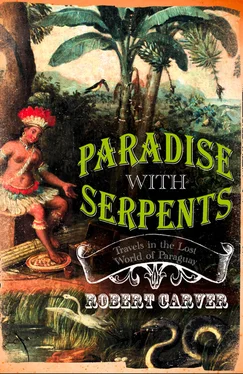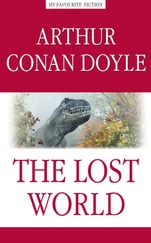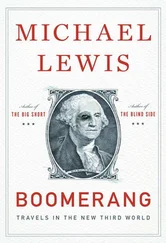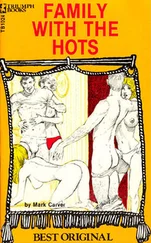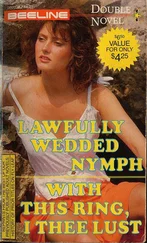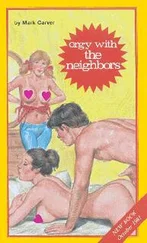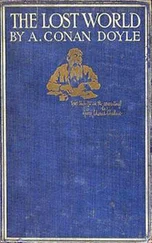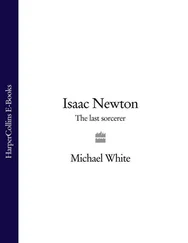1 ...8 9 10 12 13 14 ...20 Before Stroessner came to power there had been a long, bitter civil war in Paraguay. As many as a third of the population had been killed – no one was sure how many had died. Lawlessness and banditry had been rife. Stroessner had taken over and enforced both peace and stability. Like Spain after the Civil War, the exhausted country had acquiesced. Yet with his peace came torture and institutionalized corruption, the eclipse of civic rights, and great injustice. As many as a third of the remaining population had fled abroad, mainly to Brazil and Argentina. Some had come back but many still stayed away. Paraguay was a risky place, but the safer countries they had fled to before, Brazil and Argentina were now themselves places of disorder, chaos and financial collapse. The press was full of massive banking scandals, directors who plundered their banks and then fled. In Argentina, the economic collapse had caused riots, kidnappings and massive unemployment. In a poll, 57% of young Argentines under 25 said they wished to leave the country as they had no faith in its future. The world was divided into those countries everyone wanted to leave and those everyone wanted to get into. The latter group was very small, and mostly run by Anglo-Saxons or Scandinavians. Argentina, Paraguay and Brazil were all immensely rich – but then so was the Congo. There was no use in great mineral wealth, skilled and talented people, and bountiful natural resources if there was corruption, if everyone stole from everyone else. In such places your money, and in the end you and your family, were only safe somewhere else.
All over Asunción there were large, unfinished tower blocks, now rotting with decay. They had been overambitious for the scale of the city, clearly. Why had anyone ever put money into starting to build them? The price of entry into Paraguay during the stronato was investment in the local economy, Gabriella told me. The high-ups in the Colorado Party had owned construction companies which took the investors’ money and ran up these partly completed structures, syphoning off most of the money into their bank accounts abroad, then simply abandoning them. Corruption under Stroessner became endemic and systematic. Even the very poorest had got into it. The ‘ hormigas ’ as they were called, the ants, plied to and fro across the border with Brazil, smuggling goods to and fro by hand, in bags and cases, bribing the Customs each time. ‘Contraband is the price of peace,’ Stroessner said. Smuggling, bribery, corruption and illicit activities of all kinds became the bedrock of the economy. The country began to forget how to work. Once oranges, bananas, tropical fruit of all sorts had been grown commercially and exported to Brazil and Argentina. Now all these products were imported from Brazil, from Colombia. Under Stroessner everyone had been able to become a small-time contrabandista . One of the reasons for the complete absence of any coherent collectivist left opposition was the petit-bourgeois, small capitalist mentality that reached right down to street traders and Indians selling vegetables in the streets. There was no local car industry to protect in Paraguay, unlike Brazil and Argentina, so shiploads of second-hand cars came up the river, bought in job lots in the southern USA. And stolen cars poured across from Brazil, driven in from Sao Paulo, the Customs officials on both sides bribed. The contrast between the beggars on the streets, the mendicant cripples, the unmade roads, broken pavements and leaking water mains in Asunción, and the massed ranks of brand new BMWs and Mercedes was marked. The President and his wife were both alleged to drive cars stolen in Brazil – a local newspaper had exposed the story and printed photos of them getting out of the hot cars which had been hijacked from the streets of Sao Paulo. I mentioned J. K. Galbraith to Gabriella – she was a journalist after all – and suggested that his dictum of ‘private affluence, public squalor’ applied to contemporary Paraguay. She had heard of neither Galbraith nor his well-known equation. It was Gabriella, also, who denied that she knew the meaning of the word ‘ cacique ’, a term used all over the Hispanic world for a local political boss, but which came originally from a South American Indian derivation. I saw it printed in the local Asunción papers many times. The previous President of Paraguay, Carlos Wasmozy, was in gaol for four years, for having embezzled US$4 million – that was all they could find, anyway: a year for every million stolen. Getting corrupt officials into court at all was hard. ‘ Impunidad’ – impunity – was one of the problems. Bribery was so rife that a little well-spread money prevented much from coming into the open or, if it did come out, from anything being done to prosecute or convict. The ordinary policeman was paid US$100 a month – just $25 a week, the same as Gabriella paid her cleaning maid – and the police had not been paid for three months because the coffers of the State were empty, or so it was claimed. The prison guards had not been paid for a year. In the remote north of the country the press reported that these prison guards were being fed by the prisoners’ families, who also brought food in for the inmates, who otherwise would have starved, there being no official funds to feed them. Under such circumstances corruption and bribery were inevitable. Wealthy prisoners who by bad luck found themselves in gaol soon managed to bribe their way out again: the papers frequently reported on such cases.
The question as to why no public servants had been paid for so long was easily answered: the government had run out of money, and if they simply printed more banknotes, as South American governments had in the past, they would fuel inflation and cut off the IMF and International banks as potential donors for further hard currency loans. ‘You will have noticed how many of the waterpipes in the streets of Asunción are broken,’ Gabriella had remarked. I had noticed. There were leaks everywhere, spilling out into the streets, flooding the pavements, a side effect of which was vigorous tree, shrub and weed growth beside the roads, among the cracked pavements, and even in the potholes of the lesser used streets. Asunción had been hacked out of sub-tropical jungle, and given half a chance the jungle would reclaim it again.
‘The water company, State-owned, borrowed US$10 million for repairs from a US based international agency,’ she continued. ‘The construction company that got the contract was owned by the head of the water company’s brother. A $10 million hole was dug in the ground, achieving nothing. No leaks were repaired. The hole was abandoned. Obras inconcluidas – “abandoned works” – should be the Paraguayan national motto. The $10 million disappeared abroad into offshore bank accounts. The water company officials have not been paid for more than a year. Now we have a large, useless hole, a $10 million debt, and a leaking water system. About a third of all the water is lost through leaks and broken pipes. Scientific tests have shown that the water is seriously contaminated – cholera and typhoid among other infections are in the system.’ Before Stroessner there had been no piped water at all, just as there had been no airport, or paved, metalled roads. People had their own wells, or depended on water sellers who toured the capital with mule-drawn tanks. Now there were frequent electricity blackouts, and the petrol stations regularly ran out of fuel. Those who could afford them had emergency electricity generators. In spite of the fleets of stolen luxury cars, Asunción more closely resembled a decaying African city, falling apart after the European colonials left, than anywhere in Europe. Stroessner had attracted immigrants and capital because he accepted gangsters on the run, fraudsters, conmen, Nazi war criminals with stolen loot, and because he offered a stable, authoritarian government which built roads, created infrastructure, and limited corruption to himself and his cronies. Now he was gone what he built up was in no way maintained or replaced. Paraguayans had not paid for these things, foreigners had. They felt, like colonial peoples newly liberated, no debt to the past, no sense of possession. His successors were bent purely on looting the country and fleeing abroad with what wealth they could steal. According to a report in Ultima Hora , the only income the Paraguayan government now had was the monthly US$16 million from Brazil for hydroelectrical power Paraguay exported across the border. Without this sum the government would be completely bankrupt. Yet it was not enough to pay even the civil servants. There had been a plaintive letter published in the papers from Paraguay’s ambassadors abroad. They, too, had not been paid for a year, and the rents on their embassies and residencies were in default. Unless money was forthcoming, embassies and residencies could soon be repossessed. This was all a minor nuisance for the few very rich in Paraguay, with their money abroad in offshore havens, their houses with tall walls built round them manned by armed guards, or sequestered on 200,000-hectare ranches. For the great majority of the country, it made life a grinding misery. Paraguay was potentially a very rich country, fertile and replete with mineral resources, yet so badly was it managed, and so feebly was it cultivated that it imported even basic foodstuffs. The supermarkets were full of goods brought in from Brazil, Argentina and Europe that could easily have been grown domestically.
Читать дальше
